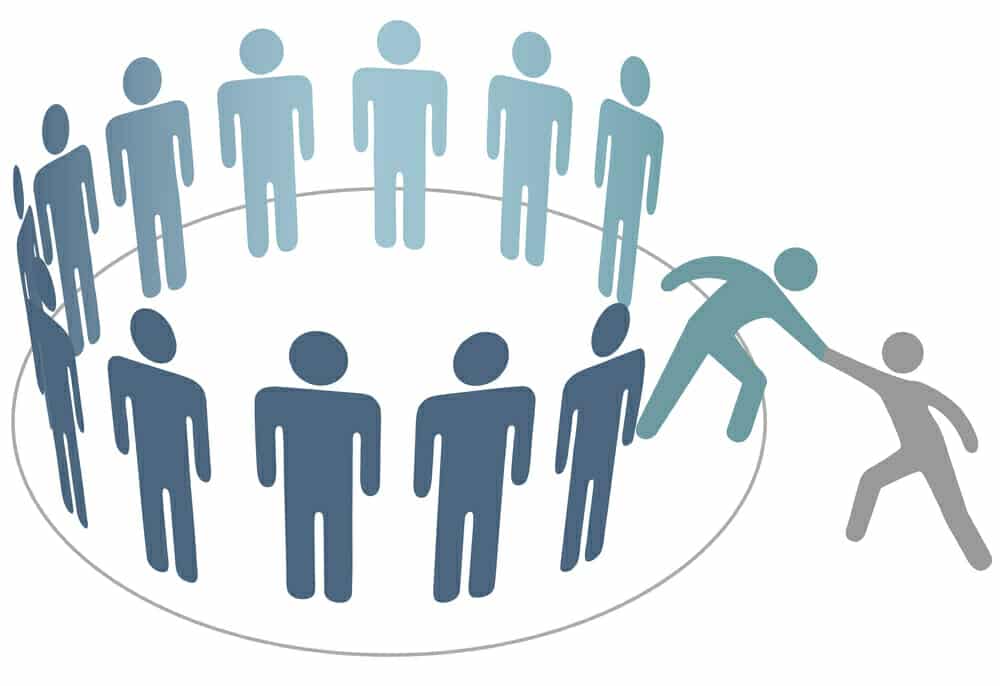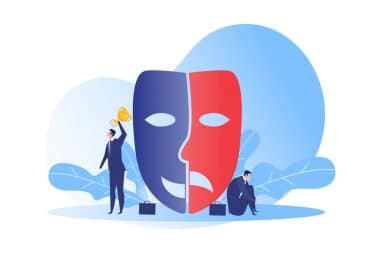There’s a difference between listening to words and hearing what goes on in someone’s head and heart as they talk. The latter signifies empathy, a component of emotional intelligence, wherein you understand not only what the person’s words, but also their perspective. This quality can lead to a breakthrough in conflict resolution.
Most humans, although wired for empathy, don’t connect with or develop this natural skill. Perhaps they reserve their compassion for challenging times, such as when a friend needs emotional support or a family member is in pain. During everyday social interactions, people disconnect from their ability to empathize. As a result, they live in a world of “them and us,” seeing others as like or unlike them, and on that basis, treating them well or with hostility.
If people with conflicting views empathize with each other, they see situations from a broader perspective rather than through blinders. With the whole picture in sight, they make better decisions that lead to the good of all involved instead of clinging to the notion there must be a winner and a loser.
Arbitrator, lawyer, and mediator David C. Solinger states, “A moment of empathy may be the X Factor to the resolution of a dispute because it results in our taking a leap into the world of someone else or some other entity. Each of us potentially becomes a problem solver.”
People’s views on problem-solving expand to encompass the needs of others when empathy is at the helm. The awareness all living beings are connected and hurting others damages everyone has the power to end wars or prevent them beginning.
According to nonviolent communication advocate and collaboration consultant Miki Kashtan, PhD: “When we are in conflict with someone, or are adversely affected by someone’s actions, even without personal interaction, or see others being adversely affected, our habit is often to pull back, close our hearts, create judgments about the other person, and all around make them less than human.”
The response to conflict, as Kashtan describes it, occurs because people experience fight or flight. Their systems, both physically and mentally, prepare for survival. Higher faculties used for reasoning shut down so those necessary for combat can shift to the fore. Along with arteries that narrow to reduce blood flow, so too does the person’s perspective. Pinpoint focus on survival is vital if a tiger is about to sink its teeth into your larynx. At most other times, though, a broader perspective is helpful.
According to author Mohsin Hamid, “Empathy is about finding echoes of another person in yourself.” When you note others are like you in some way, you stop seeing yourself as separate from them and can imagine how you would feel in their place. How can you tap into empathy though?
You often walk past people without thinking about their experience at that moment. Everyone does the same because permanent empathy can get overwhelming. You automatically filter out information you consider unimportant to create room for vital data as well. By making a point of connecting with others now and then, your empathy will grow in a way that isn’t overpowering.
Once a day, consider the people you interact with momentarily. The bus driver you encounter on the way to work, the bank clerk who handles your financial business, and other people you see are all wrapped up in their private worlds. Connect with them using your imagination to sense what they might think and feel, and your empathy will grow.
You might think you need not practice empathy if you aren’t involved in conflict resolution in a professional capacity, but you negotiate and manage other aspects of communication all the time. How you handle yourself influences everyone you meet, and the ripples flow further afield. By raising your emotional intelligence via practicing empathy, you can enhance the emotional health of others and improve your relationships.
References: “Can you teach people to have empathy?” BBC.co.uk. David C. Solinger, Solingerlaw.com. Miki Kashtan Ph.D., “Who benefits from empathy?” Psychologytoday.com, and Brainyquote.com.









Reply